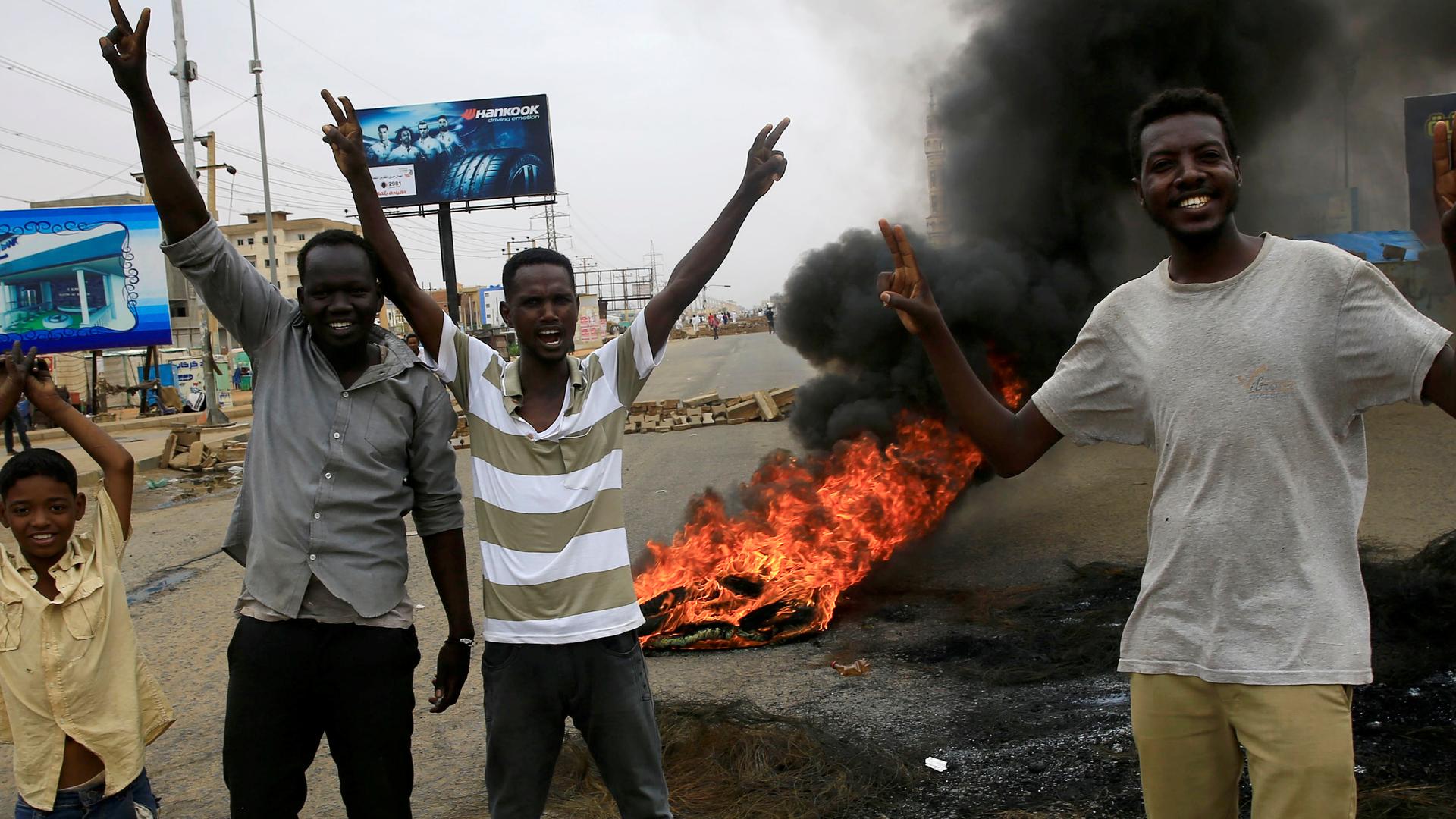Sudanese protesters gesture near burning tires used to erect a barricade on a street, demanding that the country’s Transitional Military Council handover power to civilians, in Khartoum, Sudan, June 4, 2019.
Poland marked on Tuesday 30 years since its first postwar democratic election, an anniversary that has become a battleground over the legacy of communism between the liberal opposition and the ruling nationalists.
The partially free vote on June 4, 1989, handed victory to a government led by the Solidarity trade union and triggered a series of events culminating in the fall of the Berlin Wall that November.
Even as opposition-controlled city authorities across Poland organized public festivities to celebrate that vote, the right-wing, Eurosceptic Law and Justice (PiS) government held only a muted ceremony in parliament.
Related: Poland forces Supreme Court judges into early retirement
The biggest celebrations took place in the Baltic port of Gdansk, which is the cradle of the Solidarity trade union that toppled communist rule. They were attended by Donald Tusk, a former Polish prime minister, but by no senior PiS officials.
Related: Poland steps away from democracy and EU in latest judiciary reforms
Tusk, who is now president of the European Council and chairs EU summits, praised the Polish “heroes” who fought for democracy in 1989 and urged voters to honor their example by turning out to vote in national elections later this year.
“I ask you to follow our heroes’ path … and we can repeat the situation … to win again what we won then … freedom, solidarity, democracy,” said Tusk, a longtime opponent of PiS.
Conservative values
While hailing the end of communist rule in 1989, PiS says liberal politicians then wasted the chance to create a fairer society true to its Christian roots and conservative values.
PiS says more should have been done in those heady days of transition to purge state institutions of communist officials and also to shield more vulnerable Poles from the impact of tough economic reforms.
PiS has used its criticism of Poland’s democratic transformation to justify sweeping reforms of the justice system, which critics at home and abroad say undermine the rule of law.
Since shedding communism, Poland has joined the European Union and the NATO military alliance, but many Poles feel its embrace of Western values and pro-business economic policies has come at the expense of its own citizens.
PiS has intensified the debate, arguing that communist-era practices still hamper the judicial system due to the failure of liberal governments to rid them of pre-1989 judges, making them inefficient and unfair.
“Both sides are living a myth,” Konstanty Gebert, a communist-era opposition activist, said of the PiS and the opposition camps.
“We didn’t build a Poland of enlightened, free citizens who want to live in a tolerant society,” said Gebert, now a liberal analyst with the European Council for Foreign Relations think-tank.
Anna Jaworska-Guidotti of Reuters reported from Gdansk, Poland.
